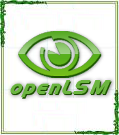What is openlsm?
openlsm stands for “open source GNU/Linux Server Management“, is free/open source project started by IndianGNU.org community.openlsm is a web hosting control panel for GNU/Linux and Unix environments and works with MySQL and PostgreSQL database servers. It is a scalable multiserver web hosting solution and GNU/Linux server management. It supports the creation and management of Apache virtual hosts, BIND DNS domains, MySQL databases, and mailboxes, aliases with Sendmail, Postfix and Exim mail server etc. It has many advanced features and a sophisticated billing and ticketing (support) system to automate and improve your web hosting tasks. openLSM is designed to work on many servers and can be scaled by adding more web, mail, database,ftp and DNS servers without any downtime. It provides a simple, easy-to-use web disk interface to user’s home directory that can be mounted from/on any computer with internet connection.
openlsm Features!
» Web based – free and open source web hosting control panel and Linux Server Management
» Multiserver Hosting – single web-based interface for managing multiple servers.
» LAMP server – Linux, Apache, MySQL Database and PHP
» Mail Server – Exim, Postfix/sendmail and Qmail
» Mail Filtering and Spaming – spamassassin, clamav
» Authentication – MySQL database ,PAM, Flat file and LDAP Server
» Web Drive – mountable web drive with Samba Server and webdisk
» Web Development – PHP, Perl, Python and Java
» Web Server – Apache, Tomcat Server
» FTP Server – proFTP, pureFTP and vsFTP
» DNS Server – Bind DNS server with Clustering
» Jabber IM server with virtual hosting
» Clustering – MySQL database clustering & replication, Apache Web Server Clustering
» Load Balancing – Load balancing of web server and database server
» Squid, NFS Server
» User administraion, Quota management, file manager and multi level control
» Centralize log collection and reporting system
» Security – Iptables, IDS and Nagios based alert system
» Billing system, issue tracking and ticketing system
» Backup – web based backup system
» Subversion – version control system
» Bandwidth – traffic and bandwidth management
» Migration tools
